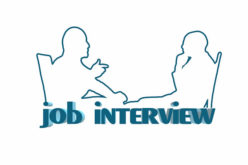An on-campus job can be the perfect solution, offering the convenience of working just a short walk from your lecture halls and library. This proximity not only saves time on commuting but also helps you feel more connected to your university community.
Working on campus provides more than just a paycheck; it’s an opportunity to gain valuable work experience, build a professional network, and develop skills that will serve you long after graduation. However, navigating the search for student employment can be tricky.
This guide will walk you through everything you need to know, from polishing your resume to excelling in your new role, helping you find a campus job that enriches your college experience.
Preparing for Your Job Search
Before you begin applying for on-cancer jobs, it’s important to lay a solid foundation. Taking some preliminary steps can significantly increase your chances of standing out to potential employers and landing a position that aligns with your skills and goals.
This initial preparation involves crafting your professional documents, understanding your own strengths, and beginning to build connections within the university community.
-
Resume and Cover Letter Polish
Your resume and cover letter are often the first impression you make on a hiring manager. For many on-campus roles, your resume might be brief, but it should be professional and highlight your relevant experiences, including coursework, volunteer activities, and any previous part-time jobs.
Tailor your cover letter to each specific position, explaining why you are interested in that particular role and how your skills make you a great fit. A well-written, error-free application shows that you are serious and detail-oriented.
-
Skill Assessment
Take a moment to identify your strengths. Are you organized, a great communicator, or skilled with specific software? Think about the skills you’ve developed through your academic projects, extracurricular activities, and personal interests.
Matching these abilities to the requirements of available on-campus jobs will help you target your search effectively. For example, if you excel in a particular subject, a tutoring position could be a perfect match. If you enjoy interacting with people, a role in the student union or admissions office might be ideal.
-
Networking Strategies
Networking isn’t just for corporate job fairs; it’s a powerful tool for finding university careers as well. Start by talking to your professors, academic advisors, and even upperclassmen. They may know of unadvertised openings or be able to recommend you for a position.
Attending university events and getting involved in student organizations can also help you build relationships with staff and faculty who may be hiring. A simple conversation can sometimes lead to an unexpected opportunity.
Navigating Campus Job Resources
Universities understand the need for student employment and typically offer a wealth of resources to connect students with on-campus jobs. Knowing where to look and how to use these resources can streamline your job search and expose you to a wide variety of opportunities you might not have found otherwise.
From online portals to dedicated career services, your campus is equipped to help you succeed.
-
University Job Boards
Most universities have an online job portal dedicated to student employment. This is often the primary place where departments post openings for positions ranging from library assistants to research aides. Make it a habit to check this portal regularly.
In addition to online boards, don’t overlook physical bulletin boards in academic buildings, the student center, and the library. Sometimes, departments post flyers for immediate openings in these high-traffic areas.
-
Career Services Department
Your university’s career services department is an invaluable resource. The staff there are dedicated to helping students with all aspects of their professional development.
They can offer one-on-one career counseling, review your resume and cover letter, and conduct mock interviews to help you prepare. Many career services offices also host job fairs and workshops throughout the year, which are excellent opportunities to meet with hiring managers from various campus departments.
-
Departmental Openings
If you have a specific area of interest, don’t be afraid to be proactive. Reach out directly to academic and administrative departments that appeal to you. You can inquire with a professor about research assistant opportunities or contact the head of a department like athletics, housing, or student activities to see if they have any openings.
A personalized email expressing your interest and attaching your resume can make a strong impression and sometimes lead to a job that hasn’t even been publicly posted.
Excelling in the Application Process
Once you’ve found promising on-campus jobs, the next challenge is to make your application shine. With many students competing for the same positions, it’s crucial to present yourself as the most qualified and enthusiastic candidate.
A thoughtful and well-prepared approach to your application and interview can make all the difference.
-
Tailoring Your Application
A one-size-fits-all application rarely works. Take the time to customize your resume and cover letter for each job you apply for. Read the job description carefully and highlight the skills and experiences that directly relate to the role’s requirements.
This shows the hiring manager that you’ve done your research and are genuinely interested in their specific position, not just any job.
-
Interview Preparation
Preparing for an interview is key to feeling confident and making a great impression. Research the department or office you’re interviewing with to understand its mission and how your role would contribute.
Practice answering common interview questions, and be ready to provide examples that demonstrate your skills. Remember to dress professionally, even if the campus environment is casual. Prepare a few thoughtful questions to ask the interviewer about the role or the department; this shows your engagement and initiative.
-
Following Up
Your effort shouldn’t end when the interview is over. Sending a thank-you note or email within 24 hours is a professional courtesy that reinforces your interest in the position.
In your message, briefly reiterate why you’re a good fit and thank the interviewer for their time. This small gesture can help you stay top-of-mind as they make their hiring decision.
Balancing Work and Academics
Securing an on-campus job is a great achievement, but the real work begins as you learn to juggle your new responsibilities with your academic commitments. While it can be demanding, many students successfully manage both with the right strategies.
Effective time management and open communication are essential for thriving in both your job and your studies.
-
Time Management Techniques
A structured schedule is your best friend when balancing work and classes. Use a planner or digital calendar to map out your class times, study sessions, and work shifts. Be realistic about how much you can handle and avoid overcommitting.
Set clear priorities each day to ensure you’re focusing on the most important tasks, and try to break larger projects into smaller, manageable steps to prevent procrastination.
-
Communication with Employers
Most on-campus employers understand that you are a student first. Be transparent with your supervisor about your academic schedule, including exam periods and major deadlines. If you need a little flexibility to study for a big test, don’t hesitate to ask for it in advance.
Open and honest communication can help you build a supportive relationship with your employer and find a work-life balance that is sustainable.
-
Self-Care Strategies
The pressure to succeed in both work and school can lead to burnout if you’re not careful. Make sure to prioritize your physical and mental well-being. Get enough sleep, eat nutritious meals, and make time for activities you enjoy.
Taking breaks and allowing yourself time to recharge is not a luxury—it’s essential for maintaining your health and performing at your best.
Maximizing Your On-Campus Job Experience
An on-campus job offers so much more than financial support. It’s a unique opportunity for personal and professional growth right within your university community.
By actively seeking ways to learn and connect, you can transform your part-time job into a valuable experience that enhances your resume and prepares you for your future career.
-
Skill Development
Look for opportunities within your role to learn new skills. Whether it’s mastering a new software, improving your public speaking abilities, or learning project management, these skills will be a great addition to your resume. Don’t be afraid to ask your supervisor for new challenges or responsibilities that align with your career interests.
-
Networking and Mentorship
Your colleagues and supervisors on campus can become an important part of your professional network. Build positive relationships with the people you work with. These connections can lead to letters of recommendation, future job references, and valuable career advice.
Seek out a mentor—perhaps your supervisor or a seasoned professional in your department—who can offer guidance and support as you navigate your career path.
-
Career Advancement
As you gain experience and prove your reliability, you may find opportunities for advancement within your on-campus job. This could mean taking on a leadership role, training new student employees, or moving into a position with more responsibility.
Such experiences demonstrate growth and leadership, which are highly attractive to future employers.
Your Campus Career Awaits
Finding an on-campus job is a proactive step toward managing your finances and enriching your college years. By preparing thoroughly, utilizing campus resources, and approaching your role with professionalism, you can find a position that not only fits your schedule but also contributes to your long-term goals.
Embrace the opportunity to learn, grow, and connect, and you’ll find that your on-campus job is one of the most rewarding parts of your university experience.
Image Credit: by envato.com
end of post … please share it!
PAYING FOR COLLEGE: getting the aid you need
-------------------------------------------------------------------------------------------------------------
end of post idea
-------------------------------------------------------------------------------------------------------------
view home improvement ideas at our Photo Remodeling center
Helpful article? Leave us a quick comment below.
And please share this article within your social networks.











